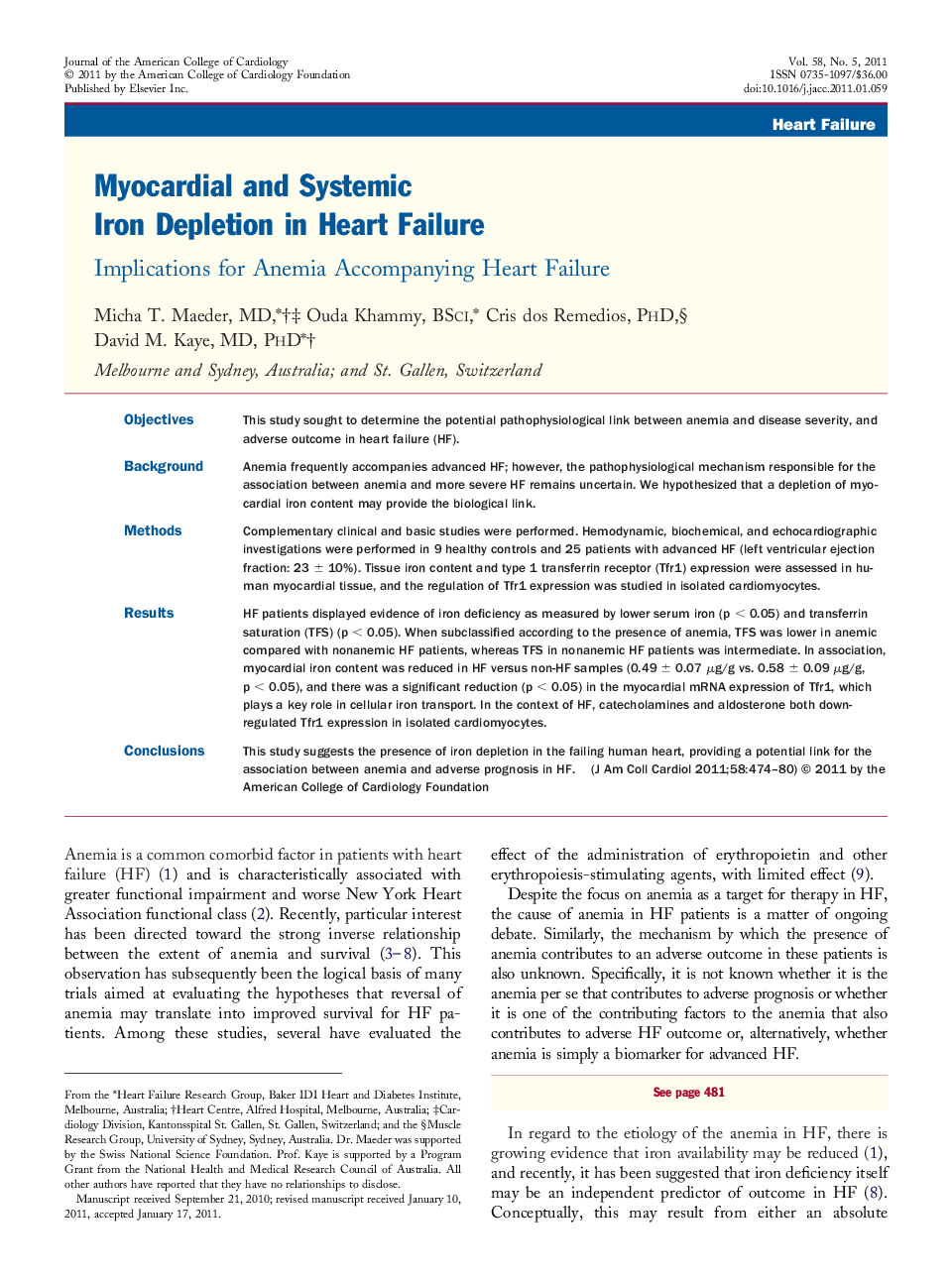| Article ID | Journal | Published Year | Pages | File Type |
|---|---|---|---|---|
| 2948896 | Journal of the American College of Cardiology | 2011 | 7 Pages |
ObjectivesThis study sought to determine the potential pathophysiological link between anemia and disease severity, and adverse outcome in heart failure (HF).BackgroundAnemia frequently accompanies advanced HF; however, the pathophysiological mechanism responsible for the association between anemia and more severe HF remains uncertain. We hypothesized that a depletion of myocardial iron content may provide the biological link.MethodsComplementary clinical and basic studies were performed. Hemodynamic, biochemical, and echocardiographic investigations were performed in 9 healthy controls and 25 patients with advanced HF (left ventricular ejection fraction: 23 ± 10%). Tissue iron content and type 1 transferrin receptor (Tfr1) expression were assessed in human myocardial tissue, and the regulation of Tfr1 expression was studied in isolated cardiomyocytes.ResultsHF patients displayed evidence of iron deficiency as measured by lower serum iron (p < 0.05) and transferrin saturation (TFS) (p < 0.05). When subclassified according to the presence of anemia, TFS was lower in anemic compared with nonanemic HF patients, whereas TFS in nonanemic HF patients was intermediate. In association, myocardial iron content was reduced in HF versus non-HF samples (0.49 ± 0.07 μg/g vs. 0.58 ± 0.09 μg/g, p < 0.05), and there was a significant reduction (p < 0.05) in the myocardial mRNA expression of Tfr1, which plays a key role in cellular iron transport. In the context of HF, catecholamines and aldosterone both down-regulated Tfr1 expression in isolated cardiomyocytes.ConclusionsThis study suggests the presence of iron depletion in the failing human heart, providing a potential link for the association between anemia and adverse prognosis in HF.
